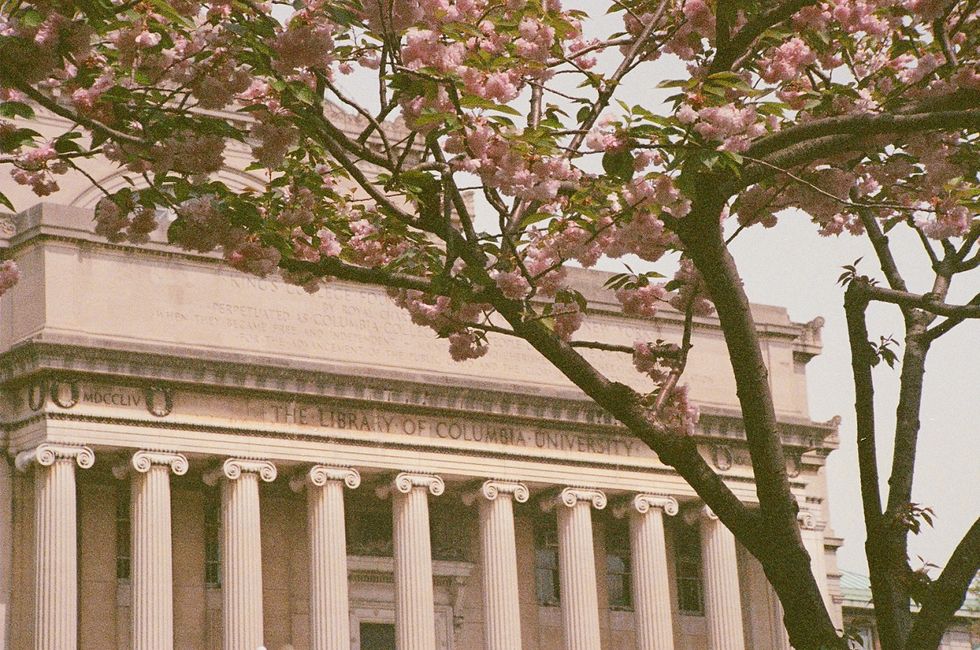“Follow your inner moonlight; don't hide the madness. You say what you want to say when you don't care who's listening.” ― Allen Ginsberg
It's 1944. Gently-worn leather books line the shelves of Butler, Columbia University's best-known library. Golden light streams through the floor-length windows, painting the room in a sepia-tinged glow and casting shadows over the wooden floors. The only sound to be heard is the sound of textbook pages turning and ink pens writing. It's exam season.
A certain blonde-haired boy didn't seem to get the memo. He's lounging in his chair, spinning a pen around his thumb, bored. Sunlight falls on his hair like a drape. He's the only one among his peers who isn't studying his classwork. Instead, Lucien Carr is studying his reflection in the window, into the world beyond the heavy walls that encased him.
Carr wasn't cut out to be an author, but what he did do was spur a revolution throughout New York City in the world of poetry. "It's a new vision. Life," he would say, "is only interesting if life is wide. This is the Beat Generation." He was stunningly brilliant, but he could never bring himself to put his vision into action on his own. And this was precisely where his legacy picked up, even though it left him out in the end.
When we think the Beat Generation, we think of the poets who were fearless in their expression of words. We think of Jack Kerouac. We think of Allen Ginsberg. We think of William S. Burroughs. But we don't think of Lucien Carr — the man who introduced the writers to each other in the first place and the man who gave them the confidence for a vision of their own.
First thought, best thought.
Columbia University in the mid-1900's served as the birthplace of a new form of artistic expression. The "Beat Generation," as they called it, portrayed the sort of expression that promoted selfless, raw emotion in writing. It was the embodiment of risk and vulnerability. A close-knit group of friends and college students created their own aesthetic to defy society, one that demolished conventional standards and encouraged a bold, straightforward attitude in art.
Lucien Carr was the center of this circle. Though he never published any of his writing, he inspired his friends to be unapologetic about themselves in their prose. Carr coined the term "first thought, best thought" to encourage writers and artists to trust their instincts and believe in their deepest thoughts and wishes. He was remembered to have "the sort of charm that people wrote sonnets about." Allen Ginsberg himself called Carr his first love and sweet vision.
And then, just as the future carried a glistening appearance, Carr committed a crime that cost him his credibility, friends and dreams, ending the euphoric high of Lucien Carr's experience as a part of the Beat Generation. As his time in a reformatory center passed and darkness haunted the group, he distanced himself. His own vision was corrupting him. Gone were the days of late-night writing sessions around campus, partying along Morningside Heights and trying artistic experiments with his college best friends. Carr needed to get his life back and move onto adulthood, and he couldn't do this while preaching about a concept that he himself couldn't believe in anymore.
Carr kept in touch with Ginsberg and Kerouac as their careers as poets exponentially grew. Ginsberg even dedicated his most famous poem, "Howl," to Carr, though Carr later asked him to remove the dedication. It wasn't hard to tell that Lucien Carr didn't want his legacy to center around him. He wanted to fade away into history as a mere acquaintance of the Beats and nothing more.
Perhaps you've never heard of Carr, or you vaguely know of him through Dane DeHaan's portrayal of him in the 2013 film "Kill Your Darlings."It's hard to remember that he's not some sort of enigmatic character straight from a classic. He was alive, he was a real human being, and he's the reason we're able to read "Howl And Other Poems" by Ginsberg, or "A Coney Island Of The Mind" by Ferlinghetti. He's the reason other authors like myself decided to branch out in their own writing, introducing an emotional authenticity that has been displayed in literary works ever since.
Lucien Carr, no matter how forgotten, is the Beat Generation.
Learn more about Lucien Carr and the Beats here.
















